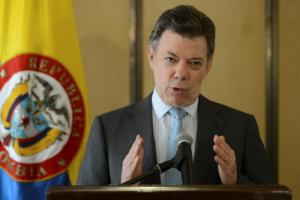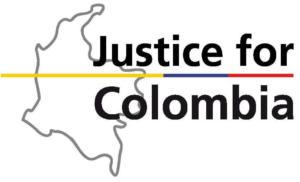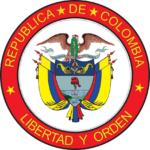Most people in Colombia voted for the “NO” option in their recent referendum, and rejected a previous deal signed by the government and the leaders of the Colombian Revolutionary Army Force (FARC). A new deal will be signed and, at least in theory, it is supposed to be submitted to the Congress for further approval. This was announced by Colombian President, Juan Manuel Santos, in a nationally televised address on Tuesday 22/11/2016.
 This has been an armed conflict that has lasted more than 50 years and caused deaths for many generations in Colombia, and now seems to be getting closer to a definitive cessation of hostilities. At this point, the end of that conflict looks more achievable by signing a new Peace Agreement between the national government, represented by President Juan Manuel Santos, and the FARC rebels led by Rodrigo Londoño Echeverri, also known as “Timochenko”. However, many Colombians remain skeptical with regard to the eventual approval of the new Peace Accord.
This has been an armed conflict that has lasted more than 50 years and caused deaths for many generations in Colombia, and now seems to be getting closer to a definitive cessation of hostilities. At this point, the end of that conflict looks more achievable by signing a new Peace Agreement between the national government, represented by President Juan Manuel Santos, and the FARC rebels led by Rodrigo Londoño Echeverri, also known as “Timochenko”. However, many Colombians remain skeptical with regard to the eventual approval of the new Peace Accord.
Even the former President, Alvaro Uribe Velez, who took a very active role in the campaign against the previous deal, has stated his disagreement with this Accord. He is critical as to how President Santos has managed this issue, and accused him of practically conceding to all of the FARC demands without proper punishment. Moreover, Uribe has criticized the fact that the deal offered a high degree of impunity to the main perpetrators of terrible crimes against the civil population in those zones under FARC control.
 Although the upcoming Accord signage has generated controversy among most Colombian population, it is worth commenting that from 1984 to now, many initiatives for achieving a progressive return to peace in Colombia have been proposed. Because of the complexity of the contexts implied in the conflict, in consequence, all of the attempts for peace processes are complex, too. Actually, the axes of the conflict have been changing throughout the years, and they have shown a blend of different approaches. Ranging from disputes on the value of a ‘left’ or ‘right’ approach by the government, authoritarianism versus democracy, addressing conflicts in regards to particular indigenous groups and the exploitation of their natural resources, to organized criminal activities and narco-trafficking.
Although the upcoming Accord signage has generated controversy among most Colombian population, it is worth commenting that from 1984 to now, many initiatives for achieving a progressive return to peace in Colombia have been proposed. Because of the complexity of the contexts implied in the conflict, in consequence, all of the attempts for peace processes are complex, too. Actually, the axes of the conflict have been changing throughout the years, and they have shown a blend of different approaches. Ranging from disputes on the value of a ‘left’ or ‘right’ approach by the government, authoritarianism versus democracy, addressing conflicts in regards to particular indigenous groups and the exploitation of their natural resources, to organized criminal activities and narco-trafficking.
Here is a general overview of this long-standing conflict with the FARC rebels:
 Pre-1985: Background to peace mobilization.
Pre-1985: Background to peace mobilization.- 1986-1992: Activation of peace mobilization (former President Barco to Gaviria).
- 1993-1999: Integral war, marginal negotiations, and new issues (former President Gaviria to Pastrana).
- 2000-2003: National level crisis and peace process decline (former President Pastrana).
- 2003-2010: A radical move from peace negotiations to a ‘Democratic Security’ program (former President Uribe’s non-peace process for a so-called peace process).
- 2011-current: Peace process with the FARC (President Santos).

 Pre-1985: Background to peace mobilization.
Pre-1985: Background to peace mobilization.